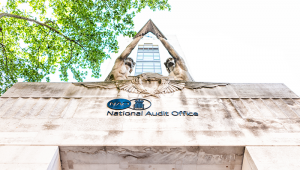15 June 2007
Britain will honour the aid pledges it made at Gleneagles in 2005, even if others are reneging on them, Development Secretary Hilary Benn has told Public Finance.
Speaking in the wake of accusations from anti-poverty campaigners that the Group of Eight meeting in Heiligendamm made a 'farce' of the aid pledges made in 2005, Benn said: 'Are all the other G8 countries on track to keep those commitments? No, not currently.'
Benn added: 'What happened at Heiligendamm was that countries reconfirmed their commitment to do that, but in the end the issue is: do people do what they promised and not just promise what they are going to do?'
'The best thing Britain can do is lead by example, and that's exactly what we're doing. Britain is absolutely keeping the promises it made for a rising aid budget.'
G8 leaders last week agreed to spend US$60bn on combating HIV/AIDS, malaria and tuberculosis in developing countries over the next five years. But campaigning charities such as Oxfam claimed that meant just an extra US$12bn a year – well short of the extra US$50bn a year by 2010 pledged at Gleneagles. Even with additional commitments made since 2005, Oxfam claimed the G8 was set to miss its own target by almost 50% – or US$27bn.
Campaigners also expressed disappointment over an apparent downgrading of the Gleneagles commitment to ensure 'universal' access to anti-retroviral drugs for all people with HIV/AIDS by 2010. At Heiligendamm, the eight countries committed to treat just 5 million in Africa – between a half and two-thirds of those needing treatment.
But Benn denied that represented a downgrading. 'Part of the gap will be filled by what [developing] countries themselves will do,' he said.
'The G8 is not solely responsible for providing treatment. What we have to do is make sure the increased aid resources go alongside the resources the countries themselves can reach, because we absolutely have not given up on the commitment.'
However, he acknowledged that campaigners and the voting public needed to keep up the pressure. 'The best way to hold people to account is through politics; to continue to campaign and to ask questions,' he said.
But that was true for all aspects of public policy, the Labour party deputy leadership hopeful and localism advocate added. 'If people feel politics is a process of decision-making which is distant and remote, then people become alienated from the political process.
'If they see it as practical and purposeful, as a means to deal with problems in their communities, and helping communities to realise their hopes and aspirations, then that's how you win people's trust and confidence and ward off cynicism.'
PFjun2007


















